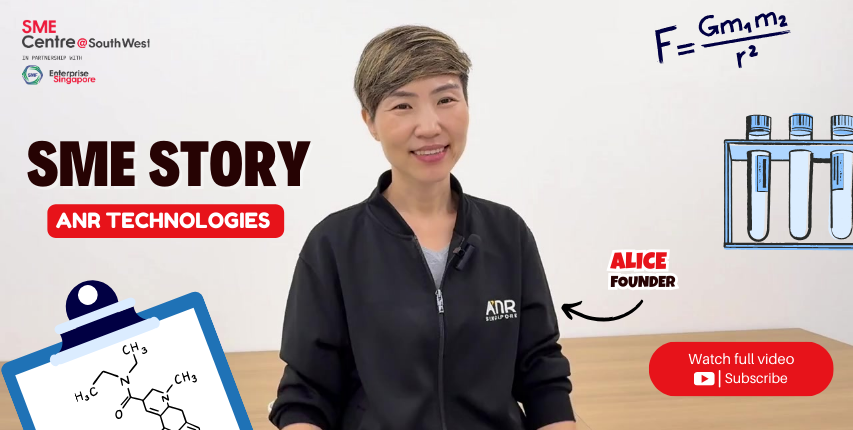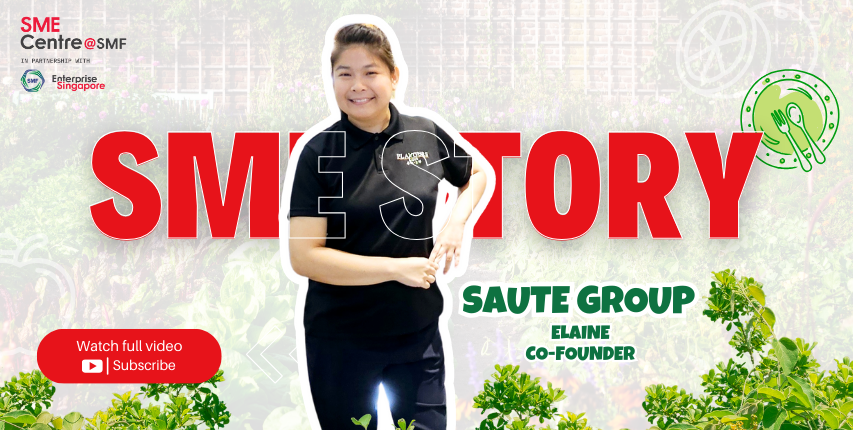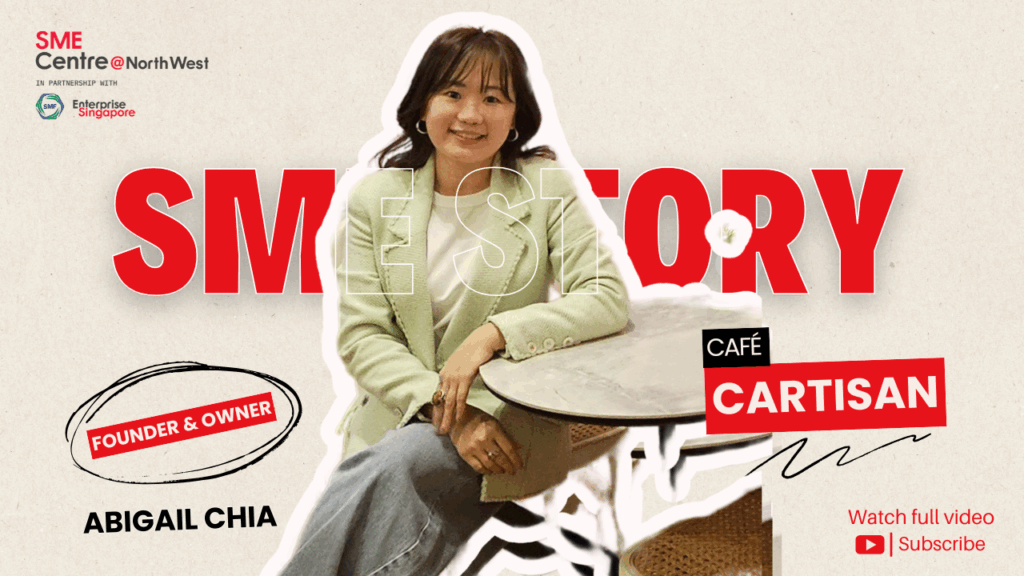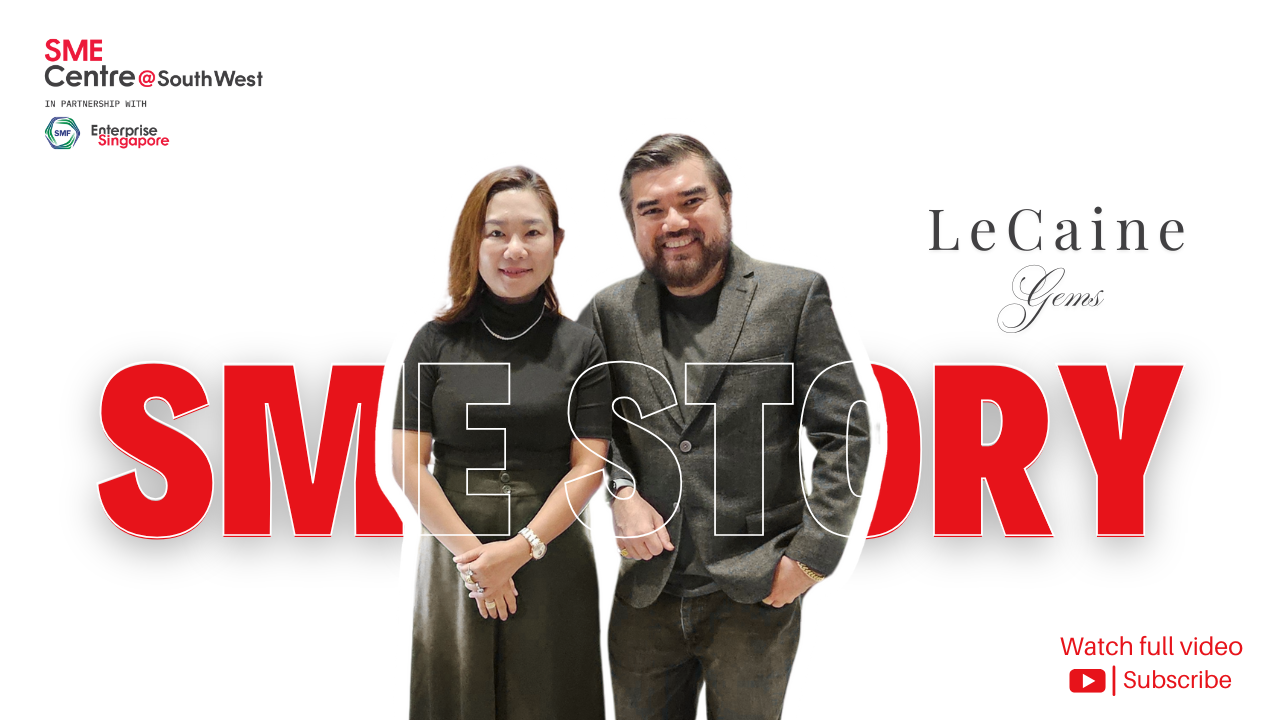SUCCESS STORIES
Let’s have a look at some of our top success stories in the recent past.

ANR Technologies started small but had big ambitions in science and #technology. From overcoming hiring challenges to expanding overseas, their journey shows how #Singapore SMEs can scale with the right support.
With guidance from SME Centre@SMF, ANR strengthened…

Saute Group is more than a plant-based restaurant brand—it’s a movement in Singapore’s F&B scene. From sushi trains to local favourites, they’ve reimagined sustainable dining to be inclusive, exciting, and full of flavour.
Hear from co-founder Elaine on how the business…

What does it take to build a thriving café in Singapore’s competitive F&B scene? For Café Cartisan, it’s a mix of creativity, resilience, and passion. From navigating pandemic challenges to delighting customers with unique artisanal coffee and cakes, their journey is truly inspiring.

LeCaine Gems blends craftsmanship with innovation, creating fine jewellery using lab-grown diamonds and vibrant sapphires. More than a business, it’s a legacy built on sustainability and accessibility.
SME Centre@SMF’s expert guidance helps EXCEL Hardware reach new heights
EXCEL Hardware is a furniture hardware company in home living products, with their top selling essential products consisting of cabinet hinges, drawer slides and kitchen baskets.
The company is also a proud member of the SMF. In this 9th episode, join us as the representative of EXCEL Hardware, Ms Wendy Chua shares how EXCEL hardware benefitted from the services by the SME Centre@SMF.
Unleash the flavors of Singapore with Amici Events and Catering’s bespoke catering services
Established in 2000, Amici Events and Catering is a boutique food caterer in Singapore that offers a wide selection of buffet catering services as well as specialised services such as wedding catering, tea reception, corporate event catering and event catering. Amici was approached by SME Centre@SMF to join the PBG Programme to help them.
A Taste of Heritage: Traditional Flavours Approach to Innovation
Lek Lim Nonya Cake Confectionery is a kueh manufacturer that was established in the 1960s.
The company is also a proud member of the SMF. In this episode, hear from Lek Lim how the SMF membership and SME Centre at SMF have helped its …
➜ Read More

Kolomee Food Manufacturing
How Automation is Revolutionising the Manufacturing Industry
SMEs play an important role in shaping Singapore’s economy.
SME Centre@SMF is pleased to support Kolomee Food Manufacturing Pte Ltd in their…

SMEs shaping Singapore’s economy: Meet Chocobar and their growth plans
Tapping on Productivity Solutions Grant (PSG) For Maximising Efficiency and Productivity. SMEs play an important role in shaping Singapore’s economy.
SME Centre@SMF is pleased to support F&B SMEs in their quest to upgrade…

Index-Cool International’s Journey towards Process Automation and Business Improvement
Without any assistance, it can be a daunting task for SMEs in the manufacturing sector to automate, given the high cost of machinery and challenges in finding the right solutions. Yet, automation is of critical importance for…
➜ Read More

SME Centre@SMF supports Rumah Makan Minang in Business Expansion and Productivity Improvement
If you love Indonesian food as much as we do, you’re in for a treat!
From a humble stall in the 1950s, to the shophouse that sits today in the Malay heritage district as part of the Singapore Tourism Board’s heritage trail, Rumah Makan Minang has grown over the years. Helmed by its third-generation owner, this Indonesian restaurant is well-known for…

Yuan Sheng Trading Enterprise
Redefining Traditional Bak Kwa for the Modern World
Plant-based Bak Kwa, anyone?
Recognising the potential of this trending market, Yuan Sheng Trading Enterprise Pte Ltd has developed new vegan Bak Kwa products to cater to the growing market demand and allow those on a vegan diet to enjoy the taste of Bak Kwa.

SME Centre@SMF is glad to have supported Kim Guan Guan Coffee Trading Pte Ltd (KGG) under Enterprise Singapore’s Partners for Business Growth (PBG) programme through the work of our Business Development Advisor (BDA).
In the PBG programme, a dedicated BDA works closely with selected promising companies to conduct…
Jil & Yellowtail Pte Ltd
As a proud member of the Singapore Manufacturing Federation (SMF), Mr. Eddie Lim, the owner of Jil & Yellowtail Pte Ltd, shares his company’s remarkable journey with the SMF and expresses his heartfelt gratitude towards the Federation for its unwavering support to local SMEs like his through initiatives such as SME Centre@SMF and MATO.
Get inspired by Mr. Lim’s story of success and resilience in the competitive business landscape, and how the SMF has played a pivotal role in empowering Jil & Yellowtail Pte Ltd to thrive and flourish.




